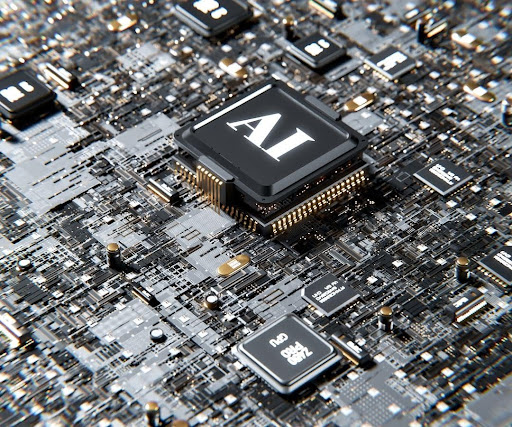
AI And Ultrasound: How Clinics Are Leveraging New Technology
Artificial intelligence (AI) has reshaped healthcare by delivering real-time data and boosting diagnostic accuracy. Research shows that AI can improve the ultrasound diagnostic accuracy rate to nearly 100%. This technology can transform medical outcomes by enhancing the speed and precision of ultrasound imaging.
Let's explore how AI ultrasound is revolutionizing healthcare diagnostics.
Is AI Integration in Ultrasound Technology a New Era in Medical Imaging?
Ultrasound technology was developed for military use during World War II. However, it transitioned to medical applications by the 1950s. Early ultrasound machines produced low-quality, grainy images. But advances in technology and imaging techniques significantly improved resolution and clarity, making ultrasound indispensable in medical diagnostics.
Today, ultrasound technology is an essential medical imaging tool due to its non-invasive nature and ability to visualize soft tissues. The recent integration of AI into diagnostics has transformed ultrasound imaging, marking a new era in medical imaging.
Ultrasound AI operates through algorithms that analyze real-time ultrasound images with exceptional speed. These algorithms are trained using vast datasets of ultrasound scans to identify abnormalities with high precision. AI ultrasound technology now holds the potential for effective interpretation of scans and early detection of diseases.
Benefits of AI-Enhanced Ultrasound
Here’s how AI ultrasound contributes to the field of medicine:
Enhanced Diagnostic Accuracy
AI enhances diagnostic accuracy in ultrasound by improving image quality through noise reduction, artifact suppression, and enhanced contrast. AI algorithms can:
- Standardize imaging for consistency across scans
- Reduce variability in interpretations
- Significantly minimize false positives and negatives for more reliable diagnoses
Earlier Detection of Abnormalities
AI systems use machine learning algorithms trained on ultrasound image databases. They analyze images with incredible speed and accuracy to recognize patterns and deviations from normal tissue characteristics. This helps detect even subtle changes in the body that human eyes might miss.
AI continuously learns and refines capabilities to identify potential problems with high sensitivity, which affects how accurately the disease is detected. A recent study highlights how AI ultrasound imaging accurately predicted lymph node metastasis in breast cancer patients, achieving 88% sensitivity. This is how AI ultrasound can help in early detection and prompt intervention.
Enhanced Patient Outcomes
Better diagnostics through ultrasound AI technology improve patient outcomes by detecting minute changes before the disease progresses. This helps healthcare professionals plan early intervention and personalized treatment. It further optimizes treatment effectiveness and healthcare efficiency, ultimately improving the quality of patient care and experience.
Efficiency and Workflow Optimization
AI ultrasound systems automate measurements, annotations, quantitative assessments, and reporting. This helps optimize workflows and manage patients more effectively. It also reduces image processing time, improves healthcare efficiency, and lightens workload, enabling physicians to focus on patient care.
Improved Staff Utilization
AI ultrasound systems help automate repetitive tasks. These systems manage tasks like image analysis and administration, freeing valuable time and expertise. This allows healthcare staff to concentrate on complex, patient-centric duties. It helps them provide higher-quality care, engage more with patients, and make informed clinical decisions based on AI-generated insights.
Current Applications of AI-Enhanced Ultrasounds in Medicine
Here’s how AI ultrasound technology has transformed medicine:
Cardiology
- Echocardiography: A study shows that AI ultrasound allows minimally trained sonographers to acquire accurate, expert-level images. It helps assess heart function and identify cardiac abnormalities with speed and precision.
Obstetrics and Gynecology
- Fetal health monitoring: AI ultrasound aids prenatal care by assessing fetal growth, detecting issues, and monitoring a patient's pregnancy.
- Enhanced 3D/4D imaging: It enables detailed visualization of fetal anatomy, supporting prenatal diagnosis.
Radiology
- Liver and abdominal imaging: AI ultrasound detects liver lesions, assesses abdominal organs, and improves diagnostic accuracy in conditions like fatty liver disease and abdominal tumors.
- Breast imaging: AI ultrasound helps detect breast cancer early by identifying subtle abnormalities that may go unnoticed.
Emergency Medicine
- Point-of-care ultrasound (POCUS): AI in POCUS helps rapidly assess cardiac function, trauma, and emergencies, guiding urgent clinical decisions.
- Trauma assessment: AI ultrasound supports quick evaluation of traumatic injuries, prompt diagnosis, and standardization of care in emergency settings.
Musculoskeletal Imaging
- Joint and tendon analysis: AI ultrasound can detect joint diseases, tendon injuries, and musculoskeletal conditions.
- Guided injections: AI ultrasound aids in precise needle placement for injections, enhancing efficacy and minimizing procedural risks.
Pediatrics
- Neonatal care: AI ultrasound helps monitor premature infants, detect neonatal conditions early, and guide neonatal intensive care interventions.
- Growth and development monitoring: AI ultrasound helps monitor growth and developmental problems in pediatric patients.
Urology
- Prostate imaging: AI ultrasound improves prostate cancer detection, assisting in biopsy and treatment planning.
- Kidney and bladder assessment: AI ultrasound helps evaluate changes in kidney and bladder function with improved diagnostic accuracy and treatment guidance.
Oncology
- Tumor detection and monitoring: AI ultrasound can enhance tumor detection across organs, enabling early intervention and treatment response monitoring.
- Biopsy guidance: AI ultrasound provides precise guidance for biopsies, improving sample accuracy and reducing procedural risks in oncological diagnostics. It also helps prevent misdiagnosis and reduces unnecessary biopsies.

Are We Ready for This Powerful Combination?
AI integration in ultrasound technology presents technical and ethical challenges. Ensuring diverse data for robust AI training and managing image variability due to patient and equipment differences are critical. Consistency in algorithm performance across clinical scenarios is essential for reliable diagnosis.
Adherence to regulatory standards, data security, and patient privacy must be followed to protect patient data from unauthorized access. Integrating AI into existing healthcare workflows is also crucial for efficiency.
Additionally, cost barriers — including equipment expenses and sonographer training — must be addressed to use AI ultrasound technology. Overcoming these challenges can accelerate AI ultrasound adoption and transform healthcare.
Streamline Innovation: Achieve More With Less!
AI-integrated ultrasound:
- Enhances diagnostic accuracy
- Improves patient outcomes
- Optimizes healthcare delivery
- Drives progress and sustainable growth in medical technology
Premier Ultrasound supports your transition towards advanced healthcare solutions with skilled sonographers and state-of-the-art technology. We make innovation easy so you can focus on what matters.
Learn more about how you can benefit from the expertise of our highly skilled sonographers and advanced technology.


.png)
